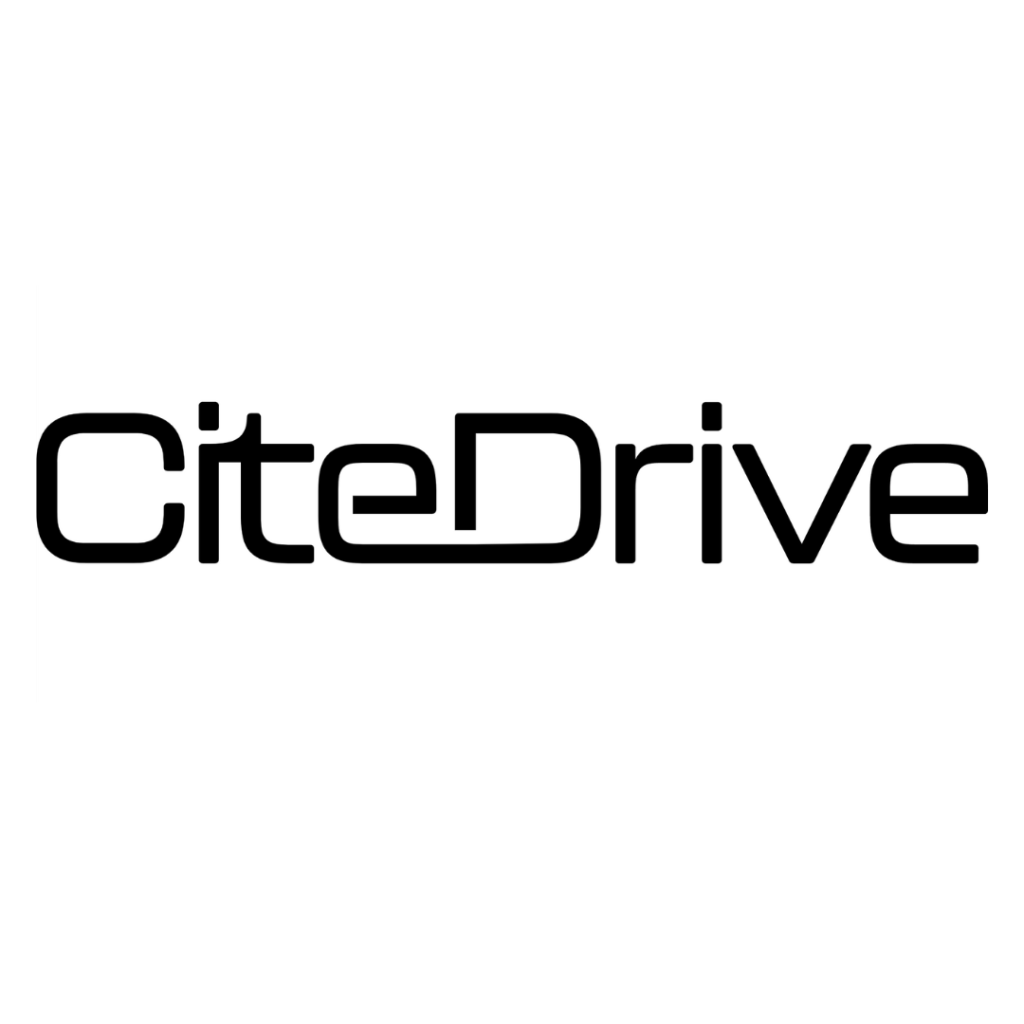

Mastering citation management is crucial for researchers for several reasons. First, it upholds academic integrity and helps avoid plagiarism by ensuring that original authors are credited for their ideas, data, and findings. This practice is essential to maintaining the credibility and ethical standards of research. Second, citation management tools help researchers organize and keep track of numerous sources efficiently. This organization makes the research process more streamlined and reduces the likelihood of errors. Additionally, different journals and academic disciplines have specific citation styles, and citation management software ensures that all references are formatted correctly, enhancing the professionalism and readability of the work.
Today, we’re excited to introduce you to one of the citation management tools: CiteDrive!
CiteDrive is an intuitive, web-based reference management tool that excels in handling BibTeX and BibLaTeX formats. It integrates effortlessly with LaTeX and Overleaf, streamlining citation and reference management. Additionally, it supports integration with R Studio and VS Code for Quarto and R Markdown projects. With its automatic formatting capabilities and online collaborative features, CiteDrive helps users save time and minimize errors in managing their references.
Figure: CiteDrive’s available options. Source: https://www.citedrive.com/
As shown in the figure, CiteDrive provides a variety of options! It includes features such as:
CiteDrive has become highly popular among Overleaf and LaTeX users because it natively supports BibTeX with both standard and custom fields, accommodating all reference management options in Overleaf, including BibTeX, Natbib, and BibLaTeX.
Overleaf is an online LaTeX editor that enables real-time collaboration, allowing multiple users to work on a document simultaneously. It offers an intuitive interface suitable for users of all skill levels. Being cloud-based, Overleaf can be accessed from any device with an internet connection. The platform provides numerous templates and tools for various document types, making sharing and publishing straightforward. Overleaf integrates seamlessly with GitHub and Dropbox and offers a comprehensive document history feature to track changes and revert to previous versions as needed.
What does this mean? A CiteDrive project allows you to structure a narrative around each subject you’re working on. This feature is particularly beneficial when collaborating with various teams on different tasks. When you or your teammates add, modify, or remove a reference, the project’s BibTeX file in CiteDrive is automatically updated. As a result, if you link a CiteDrive project to an Overleaf project, the bibliography in Overleaf can be refreshed automatically, eliminating the need to manually add new entries in Overleaf!
Dynamic documentation is rapidly gaining popularity in the scientific community and is regarded as the future of authors’ work. CiteDrive stands out as one of the first reference managers to support direct integration for this purpose.
R Markdown is an authoring framework that combines code, rendered output, and narrative text in a single document. It allows users to create dynamic reports, presentations, and documents, seamlessly integrating with R to embed code chunks within Markdown documents, enabling fully reproducible research outputs.
Quarto, an advanced open-source publishing system, extends the capabilities of R Markdown. It supports multiple programming languages, including R, Python, and Julia, and enables users to create documents, presentations, websites, and more with sophisticated formatting and customization options.
Efficient Reference Management: CiteDrive simplifies managing and citing references, making organizing and inserting citations in your documents more accessible.
Seamless Integration: CiteDrive integrates smoothly with R Markdown and Quarto, allowing you to directly import and use citations without interrupting your workflow.
Collaboration: Facilitates collaborative writing and reference management, ensuring all contributors can access and use the same citation database.
Consistency and Accuracy: Helps maintain consistency and accuracy in citations and bibliographies, reducing the likelihood of errors and ensuring adherence to citation standards.
Streamlined Workflow: By centralizing reference management, CiteDrive enhances productivity and efficiency, allowing you to focus more on content creation and less on citation formatting.
Through conversations with numerous users over the past few years, it became evident that a crucial feature was missing in reference management tools: the ability to carry references forward across different projects. This central library would represent a cumulative collection of references over time.
The long wait for this feature is finally over! Now, you can organize your references and co-authors within specific projects, such as books or publication topics, without needing to add the same reference multiple times. Instead, you can import them from other projects and access them from a centralized library, streamlining your workflow and enhancing efficiency.
CiteDrive published an announcement for the next version on Substac! The announcement realizes the founders’ next big idea: a hybrid of notes based on the zettelkasten principle and reference management.
The new version, CiteDrive 4.0, introduces Labnotes, an innovative feature inspired by the zettelkasten (note box) principle, designed to enhance the organization of research notes, thoughts, and ideas. Labnotes enables users to link their thoughts directly to literature sources by integrating BibTeX entries with Markdown files, providing a precise and intuitive system for managing and planning research. This feature is compatible with programs like Obsidian and Zettr, ensuring information remains accessible and easy to read. In the Labnotes area, users can record research snippets, to-do lists, and spontaneous ideas, seamlessly connecting them with relevant references. Labnotes also promotes collaboration by allowing users to share notes and use tags and groups for better organization. It offers the flexibility needed for both large research projects and the capture of spontaneous ideas, making it a powerful tool for creativity and collaboration. By incorporating Labnotes, CiteDrive evolves from a simple reference manager into a comprehensive research and knowledge database.
CiteDrive’s new version significantly simplifies and enhances citation management. We recommend not to wait any longer—visit CiteDrive now to streamline your research process and make your work easier and more efficient!

Vanja works as the Social Media and Academic Program Manager at Conduct Science. With a Bachelor's degree in Molecular Biology and Physiology and a Master's degree in Human Molecular Biology, Vanja is dedicated to sharing scientific knowledge on social media platforms. Additionally, Vanja provides direct support to the editorial board at Conduct Science Academic Publishing House.
